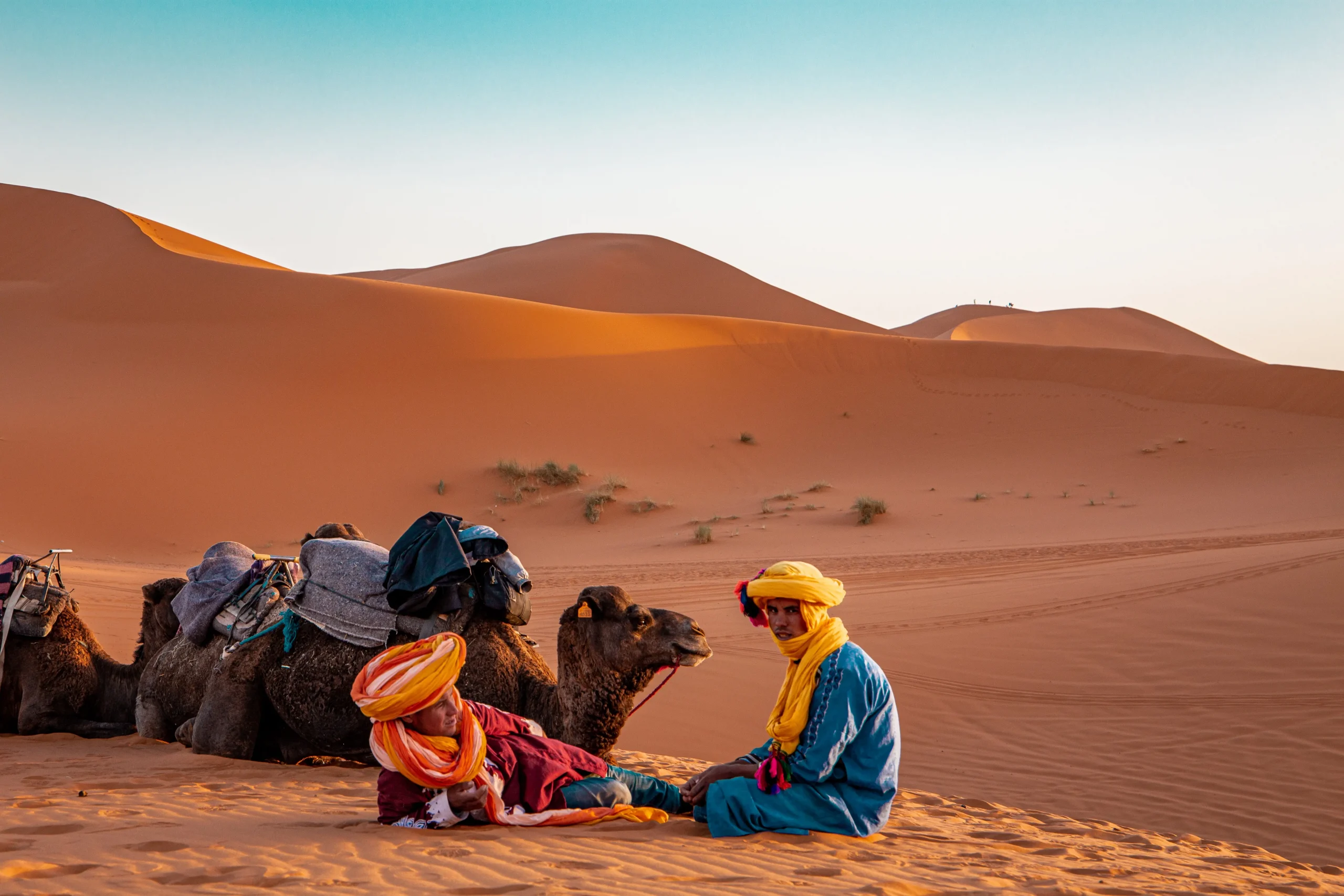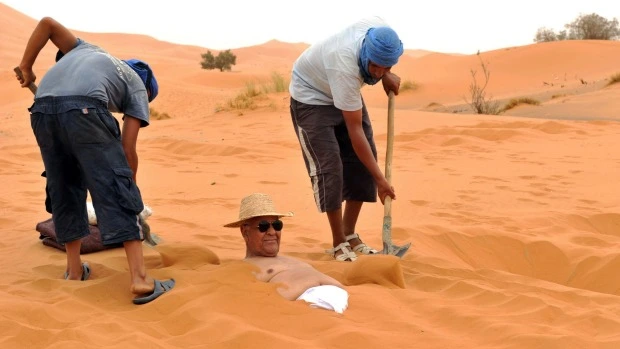MERZOUGA CITY

Merezouga, nicknamed by tourists as the “Sea of Sands” and the “Pearl of the Moroccan Desert,” is located in southeast Morocco, 130 kilometers from Rashidiya, which has wide sandy areas that visitors visit to treat rheumatism.
Merezouga’s 22-kilometer-long and five-kilometer-wide dunes provide the opportunity to contemplate the changing colors of the sand as the light changes, especially when sitting on top of Morocco’s highest dunes., especially thanks to traditional music, hospitality, and other things inherited from their ancestors.
Geographical location
The city is accessible by road or air. The road begins in Errachidia, which serves as a hub for visitors to the region. Because of the city’s location and attractiveness, a direct public bus line ran between Casablanca and Merzouga during the summer. The air route is via the air line that began early last summer between Casablanca and Rashidiya, and once at Moulay Ali Sharif Airport, the traveler must take a taxi to Merzouga. The emptiness of the place and its stillness, broken by sand waves, captivates you between Errachidia and Merzouga. When you arrive in the city, which is about 20 kilometers from the Algerian border, the climate and the grains of sand that mix with the air force you to wear a veil so that the sandstorms that occasionally surprise you do not disturb you Erg Chebbi at sunset.
Quick links to choose a Sahara Tours from Marrakech :
- 3 day Desert trip (Ait Benhaddou, Todra Gorges, Merzouga) from Marrakech
- Best 2-day desert tour from Marrakech to Zagora
- FES TO MARRAKECH 3 DAYS DESERT TOUR
History of MERZOUGA
Examining the city’s and its inhabitants’ history reveals that the area was previously uninhabited and served as a transit point for merchants traveling to or from Timbuktu, Mali. It was the arrival point for desert trade caravans (gold-slave trade) that linked the Mediterranean basin with Sub-Saharan African countries. “Sijilmasa” was the ancient city mentioned in the writings of great travelers such as Ibn Battuta and Aion the African in the third century AD, which became mere ruins in the suburb of “Al-Risani,” the commercial and spiritual capital of the region.
Sand bathing in MERZOUGA

Merzouga’s climate is hot, and it is clear from the desert how difficult life is there. But it demonstrates a consistent human experience over time. Sand bathing is not recommend if you have a joint disease.
Throughout the year, its nature is characterize as a source of tourism in terms of medical, exploratory, and sports tourism. Tourists flock to the village in search of relief from various joint diseases in the hollow of the dunes, which are embrace by hot sand and temperatures. They are aware of the magnitude of the sands’ impact. Its sand has gained therapeutic credibility over the years, making it a destination for thousands of Moroccans and visitors from other countries to enjoy and recover from sand bathing.
To avoid heat stroke, the person wishing to bathe is completely immersed in the sand, except for his head, which is covered with a large and circular hat known colloquially as “Taraza,” which is similar to Mexican hats.
The landfill process, also known as “backfilling,” lasts between 10 and 15 minutes. During this time, one of the supervisors accompanying the person. Benefiting from the sand bathing process gives him. Small doses of water to prevent dehydration from the sand absorption process. Creating burial grounds akin to cemeteries. The people of the region begin this process early in the morning. So, that these pits can gain more heat from the sun’s rays and be ready to receive those seeking treatment.
After about 15 minutes in the tent, the treatment attendant heads to one of the area’s traditional hammams for a warm bath in hot water. And, in terms of the benefits of sand baths in rheumatic diseases. The quality of the city’s sands, its continental climate, and high temperature. Help to benefit from vitamin “D,”. Which helps to strengthen bones, and the city’s presence in an area higher than the sea 3000 meters. Also, helps visitors benefit from the scorching sun, which provides an important remedy for rheumatic pain.
A variety of guesthouses and hotels of varying levels are scattered at the foot of the “Marzouga” hills. But they all offer services at reasonable prices when compared to traditional tourist destinations in the Kingdom.

